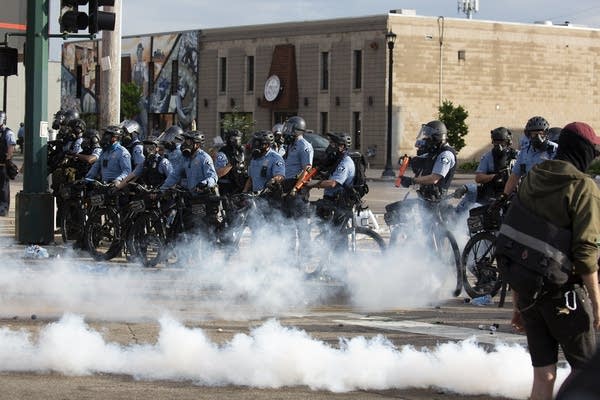Minnesota Supreme Court hears lawsuit seeking more police in Minneapolis

Go Deeper.
Create an account or log in to save stories.
Like this?
Thanks for liking this story! We have added it to a list of your favorite stories.
The Minnesota Supreme Court heard arguments Thursday morning that the city needs to “restore” the Minneapolis Police Department as part of a lawsuit from a group of Minneapolis residents who want more officers on the force.
A district court ruling last year on the lawsuit that ordered the city to comply with the minimum staffing outlined in the city charter was overturned by an appeals court in March. It requires funding for .0017 police officers for every member of the public, which the petitioners say would add up to about 730 officers.
Attorney James Dickey of the Upper Midwest Law Center told the court that current staffing is about 120 officers less than his clients believe are required. He said the low staffing for the police department, which has lost hundreds of officers since George Floyd’s murder, has led to a return to the days of “Murderapolis.”
”In the meantime, our clients have been facing, as they rightly put it, a hail of bullets ripping through their neighborhood and killing the most vulnerable, as the city refuses to change its approach to policing and restore the Minneapolis Police Department,” Dickey told the court.
Turn Up Your Support
MPR News helps you turn down the noise and build shared understanding. Turn up your support for this public resource and keep trusted journalism accessible to all.
In line with trends in large cities across the country, homicides in the city last year rose to the highest number since the mid-1990s, when Minneapolis was dubbed “Murderapolis,” but the rate isn’t as high as then because the population is larger now. Also, statistics from the Minneapolis Police Department show there have been slightly fewer homicides so far in 2022 than there were at the same time last year.
Minneapolis attorneys are arguing that the appeals court decision should be upheld, and that the charter requirement relates only to funding, but the mayor has discretion on how many officers are actually staffed with that money.
Minneapolis Assistant City Attorney Greg Sautter told the court that the charter requires the city council to fund police at a certain level, but doesn’t interfere with Mayor Jacob Frey’s control over the police department.
”Here there is no dispute that the mayor has been using his discretion continuously as he operated the police department through the COVID-19 pandemic, the murder of George Floyd by a Minneapolis police officer, the civil unrest after the murder of George Floyd, the rise in crime that’s plagued America…and the departure of more than 300 peace officers from the Minneapolis Police Department,” Sautter told the court.
The Minnesota Supreme Court doesn’t have a deadline for reaching a ruling, but typically takes an average of about four and a half months to decide a case.
Dear reader,
Political debates with family or friends can get heated. But what if there was a way to handle them better?
You can learn how to have civil political conversations with our new e-book!
Download our free e-book, Talking Sense: Have Hard Political Conversations, Better, and learn how to talk without the tension.



